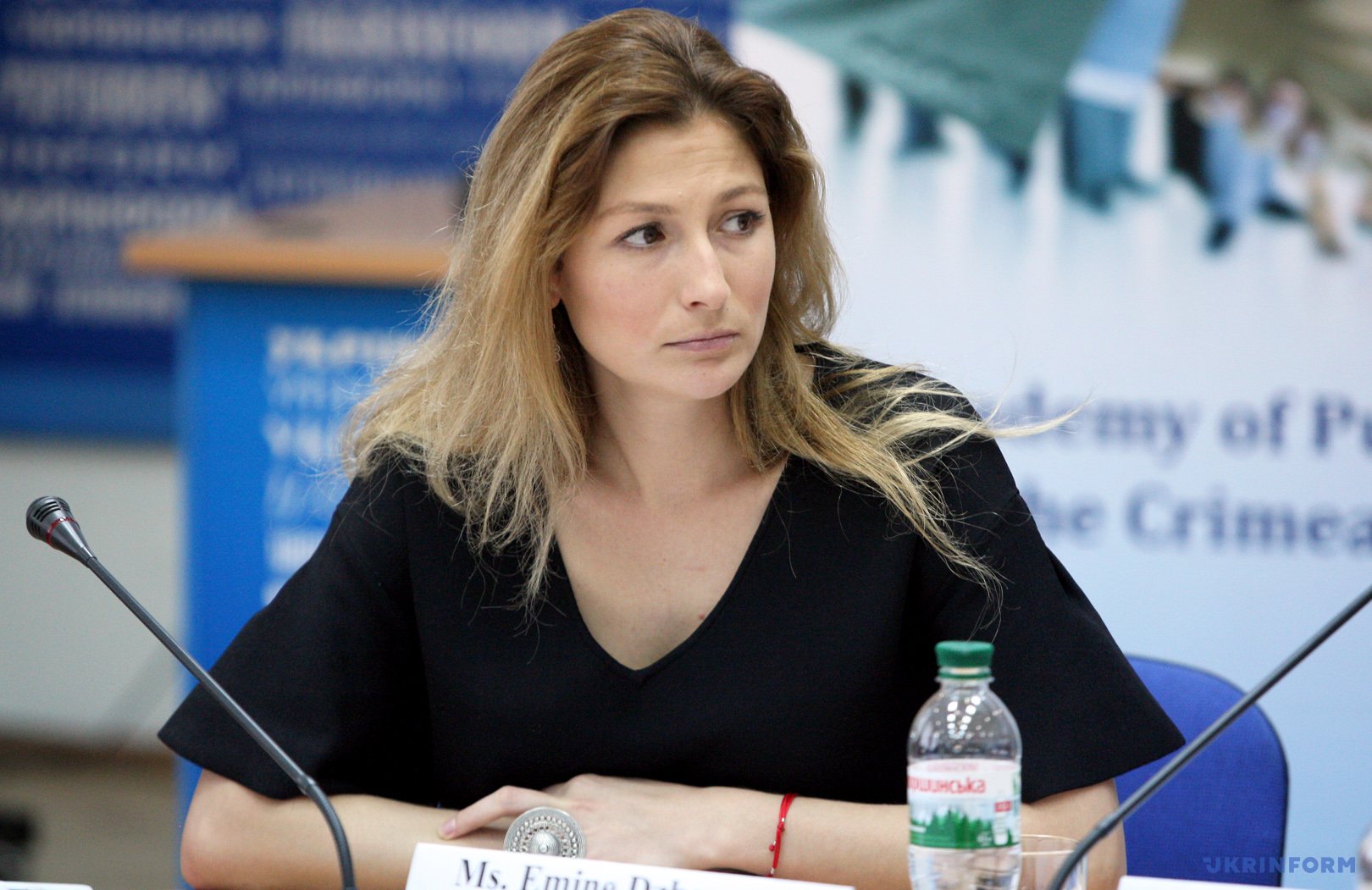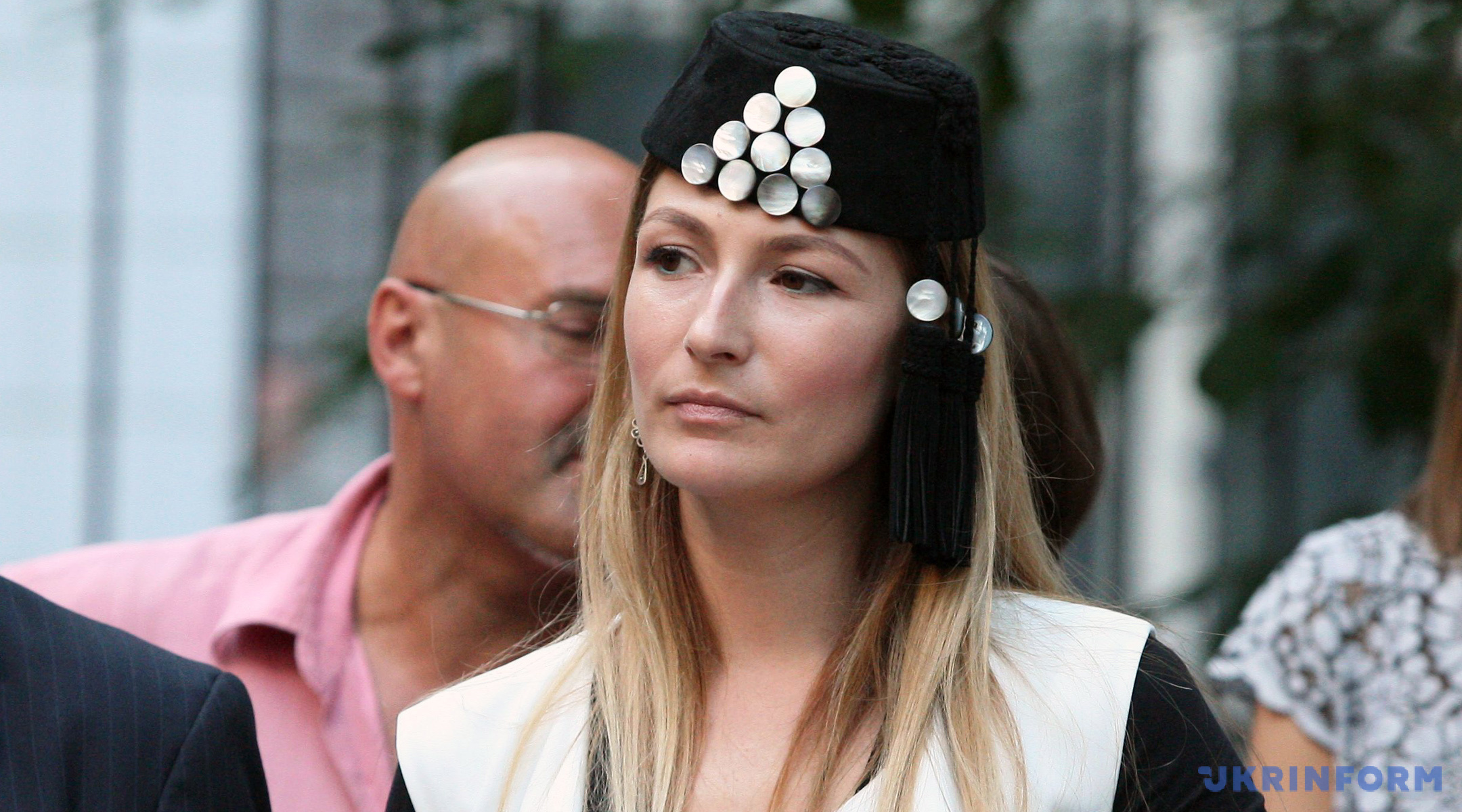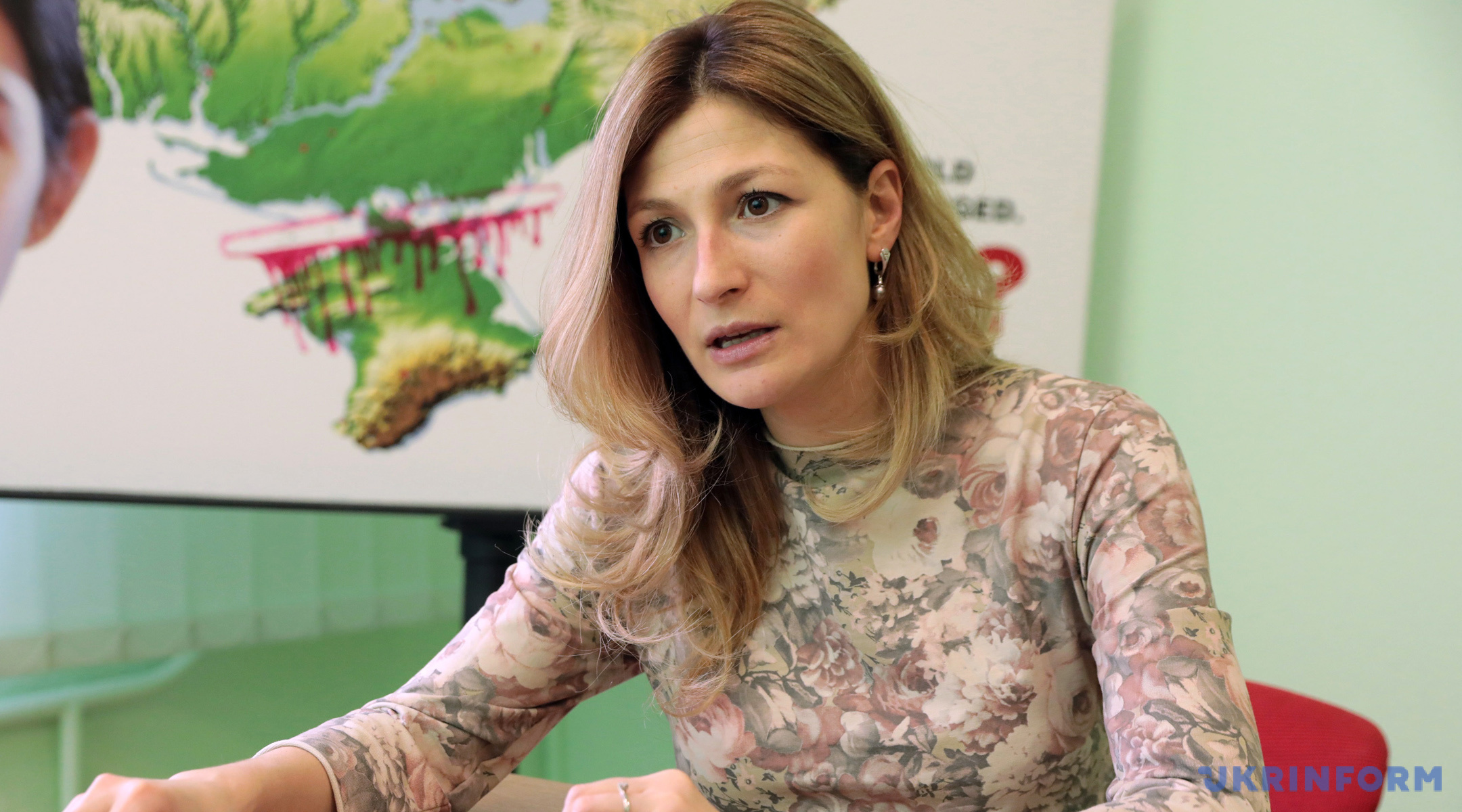For the seventh year in a row, Russian-occupied Crimea remains a painful wound on the body of the Ukrainian state. Among the latest steps, which Ukraine has made to get the issue of occupied Crimea into the international agenda and those global changes taking place on the peninsula after 2014, is the creation of a Crimean Platform, which will be represented at the next year's Summit of Heads of States and International Organizations.
The main driver and active advocate of the idea of the Crimean Platform, First Deputy Foreign Minister Emine Dzheppar told Ukrinform in an interview about those who had already confirmed the participation in this conference, about the process of its development and expected results.
CRIMEAN PLATFORM IS OPEN TO ALL COUNTRIES OF THE WORLD THAT SUPPORT DE-OCCUPATION OF CRIMEA
- Ms. Emine, in short, what is the Crimean Platform, how did the idea of its creation arise and for what purpose does the Foreign Ministry involve more and more countries in it?
- The Crimean Platform, developed by the Foreign Ministry of Ukraine on the initiative of our President's, is an international platform dedicated to Crimea, it will operate in a coordination and dialogue format, the ultimate goal is the de-occupation of Crimea and its return to Ukrainian control. On the way to this goal, we plan to work on strengthening the policy of non-recognition of the occupation of the Crimean peninsula and increasing political and diplomatic pressure on the Kremlin, including sanctions. The Crimean Platform also aims to counter human rights violations in the temporarily occupied territory of Ukraine, as well as to address security, economic, environmental and other challenges caused by the occupation. As part of the Crimean Platform, we have planned to hold a summit in the form of an inaugural event of the highest level and that will give an official start to the work of the Platform.
From the very range of these tasks, it becomes clear that our desire is to involve as many states as possible in this format.
- Has the date of the Summit already been set?
- We are working on when it is better to hold this summit. Unfortunately, for objective reasons, due to the pandemic, we are looking for a date in 2021, when we could physically hold it in Kyiv - this is the principled position of the President of Ukraine. In addition, as soon as we set the date, we will immediately start sending invitations to the leaders of the countries.
- How many countries and international organizations have confirmed their participation in the summit, how many countries are you planning to involve?
- Among the partners who have already welcomed the initiative to create the Crimean Platform are the United States, Canada, Australia, Britain, Turkey, Georgia, Denmark, Estonia, Lithuania, Slovakia, Germany, the Czech Republic, as well as the EU and a number of its member states.
The platform is open to all countries of the world that support its goals, which is primarily the de-occupation of Crimea.
As to international organizations, I can say that the Crimean Platform will also allow us to coordinate our steps with international partners within the UN, the OSCE, the Council of Europe, and NATO. On this track, we already have the achievements implemented in the decisions of these organizations, and we plan to strengthen such cooperation.
Today, consultations with our international partners continue. As a result, there is a sense that the circle of states that will support the activities of the Platform will grow steadily.

- What, in your opinion, unites those countries that have agreed to participate in the work of the Crimean Platform?
- First, it is respect for the norms and principles of the international law. Ukraine's partners, who have supported our independence, sovereignty and territorial integrity from the very beginning of the Russian aggression, will take part in the work of the Crimean Platform. These states support the adoption of documents that laid the foundation for the policy of non-recognition of the occupation of Crimea.
RUSSIAN FEDERATION IS FULLY RESPONSIBLE FOR THE OCCUPATION OF THE PENINSULA SHOULD BE INVITED TO PARTICIPATE IN CRIMEAN PLATFORM
- Does holding this forum mean that Ukraine is betting on the organization of a new, permanent negotiating platform, similar to, for example, the Minsk Protocol? Will the Summit limit itself to actualizing the topic of the occupation of Crimea on the international agenda?
- Indeed, the purpose of the Summit is to draw additional attention to the topic of the occupation of Crimea and to update it on the international agenda. At the same time, the Crimean Platform Summit has an important task. As I said, it must officially launch the Platform.
The work itself, as follows from the ultimate goal of the Platform, will be permanent and last until the de-occupation of Crimea. It will take place at intergovernmental, inter-parliamentary and expert levels and will include scrupulous, daily work on sanctions, militarization and security, freedom of navigation, human rights violations and international humanitarian law, economics and the environment, as well as keeping the Crimean issue relevant in political and scientific discourse, in the focus of media attention.
In particular, the Platform’s expert network, which will bring together Ukrainian and foreign independent experts, scholars and civic figures, will provide analytical and informational support to the Platform’s activities, as well as advocacy for its goals in Ukraine and abroad.
- Will an invitation be sent to Russia that has repeatedly claimed that the issue of Crimea is settled?
- So far, we have not sent invitations to participate in the Summit. We consult with partners on the formats and content of the Crimean Platform and its inaugural Summit.
Our principled position is that the Russian Federation as an occupying state, which bears full responsibility for the occupation and its consequences, should be invited to the Crimean platform.
- At what stage is the process of setting the agenda of the Summit? Will it include the issues of occupied territories in eastern Ukraine in the general context of restoring the territorial integrity of the state, or does the concept of the Crimean Platform focus on finding ways to de-occupy only the peninsula?
- Negotiations on the temporarily occupied territories in Donetsk and Luhansk regions are held in the Normandy format. Therefore, I want to explain: the Crimean Platform is an international platform dedicated to the de-occupation of Crimea. It is a format for the corresponding response of international community to the occupation of Crimea and threats it poses.
Work is currently underway on preparing a draft declaration for the Summit. As expected, the Summit participants in this declaration will reaffirm their support for Ukraine's sovereignty and territorial integrity within internationally recognized borders and define the foundations of international policy towards Crimea.

SAFETY OF PEOPLE LIVING IN CRIMEA UNDER OCCUPATION SHOULD BE A PRIORITY
- Is the participation in the Crimean Summit of those living in Crimea and suffering from the Russian occupation being discussed?
- The summit is primarily a meeting of the leaders of states. Undoubtedly, the opinions of people held hostage in the occupied territories must be heard, including in the international arena. We will look for a suitable form for this. Because the security of people living in Crimea under occupation should be a priority.
- International forums on the topic of Crimea have been held annually in Kyiv before, for example, as part of events dedicated to February 26 - the Day of Crimean Resistance to Russian occupation. What effect did they have and what are the projected results of the planned international forum?
- Undoubtedly, such forums have an effect both in terms of keeping the issue of Crimea on the agenda, and in terms of exchanging information about the situation there and the consequences of the occupation. An important component of such measures is the expression of political support for Ukraine’s territorial integrity. Russia spares no effort in giving the impression of recognizing Crimea as part of its territory by holding various so-called "international events" on the peninsula.
Thus, the occupying state is trying to create a separate reality, at least in the media, hoping to transfer this fake bubble to the political area. The support announced by the partners during the mentioned forums in Kyiv helps, among other things, to refute such a narrative.
The summit we are planning for 2021 will be a top-level event that will significantly enhance the effects already mentioned.
- In a few months, it will be seven years since Russia occupied Crimea. If we compare the situation in February 2014 and December 2020, what positive changes have taken place in the world in assessing the fact of occupation of the Ukrainian peninsula?
- Compared to February 2014, Russia's role is clear to all members of the international community. The status of the Autonomous Republic of Crimea and the city of Sevastopol as the territory of Ukraine temporarily occupied by the Russian Federation is enshrined in UN General Assembly resolutions and other decisions of international organizations, as well as documented Russian crimes in Crimea.
In particular, we have the UN General Assembly resolution "Territorial Integrity of Ukraine" as of 2014. Resolutions on the human rights situation on the occupied peninsula are also important. They were annually adopted since 2016, and each time new important elements are added to the text. In particular, in addition to recording human rights violations, these resolutions also recorded the status of Crimea as a Ukrainian territory temporarily occupied by the Russian Federation. This year, a draft resolution, already approved by the relevant Third Committee of the UN General Assembly, says that the bodies and officials of the Russian Federation in temporarily occupied Crimea are illegitimate and should be called "the occupying power of the Russian Federation”. A week ago, on December 7, the 75th session of the UN General Assembly adopted a resolution on the problem of militarization of Crimea, Sevastopol, as well as parts of the Black Sea and the Sea of Azov”. It is adopted for the third year in a row and shows that this issue is in the spotlight of the international community.
Moreover, sanctions in response to the encroachment on Ukraine's sovereignty and territorial integrity have been adopted and are not only being maintained, but are gradually being expanded. The Crimean Platform aims to give a new impetus to international policy towards the de-occupation of Crimea and to increase the effectiveness of these measures.
It is important to mention the consideration of cases in international institutions: the European Court of Human Rights, the International Court of Justice, the International Maritime Court. Cooperation with the Office of the Prosecutor of the International Criminal Court continues. This is a rather slow case, but human rights violations, racial discrimination and terrorist financing, war crimes and crimes against humanity have been duly documented and sent to the relevant authorities, and there are interim decisions on applying interim measures.

SITUATION IN CRIMEA IS CHANGING FOR THE WORSE
- What has changed for the worse compared to 2014?
- The situation on the peninsula is definitely changing for the worse. More and more people are becoming victims of human rights violations. The Russian occupation administration militarizes all aspects of life on the peninsula, including education. This is how the war is promoted to children. There is political repression and curtailment of fundamental freedoms, persecution on ethnic or religious grounds. The natural and cultural heritage of the peninsula is under threat.
We call on the international community to counter these negative trends in all available political, legal and economic ways together. We see the political will of many states to join this.
- What else, in your opinion, can Ukraine - the government, public organizations, and expert community - do to find new tools for the de-occupation of Crimea?
- Actually, all this has been already envisaged in the concept of the Crimean Platform.
Its "homework" (which, by the way, is already being implemented) is to update Ukrainian sanctions legislation. There are also questions to the [Free Economic Zone] FEZ of Crimea, the principles of which do not correspond to the current tasks and goals of our policy towards Crimea.
This includes the development of a national strategy of de-occupation. Moreover, the foreign policy component has already been developed by the Foreign Ministry, but the national strategy includes all elements, both foreign and domestic. This work continues.
The inter-factional deputy association "Crimean Platform" has been created in the Verkhovna Rada. Undoubtedly, the role of Parliament is important both nationally and internationally.
NGOs, in particular human rights organizations, make a significant contribution to achieving the goals we set out in the Platform. By the way, this summer we launched a format of cooperation between state and non-state institutions in order to facilitate the release of Ukrainian citizens illegally detained by the Russian Federation.
This cooperation continues and expands within the framework of establishing the Crimean Platform expert network. We have attracted experts in sanctions policy, international law, human rights, security and other professionals to create this network. As I have already mentioned, these experts will provide analytical and informational support to the activities of the Crimean Platform by preparing analytical reports, conclusions, recommendations, advocacy campaigns and expert diplomacy activities.
Thus, we see certain achievements and further ways to involve the joint efforts of the authorities and civil society to achieve our goal - the return of Crimea.
Zera Ashyrova, Kyiv
